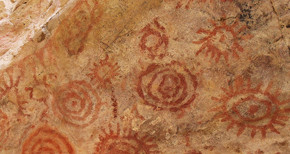New Award Honors Bertha Parker Cody, First U.S. Native American Woman Archaeologist
Thanks to generous support from the Autry Museum of the American West, the Society for American Archaeology (SAA) is honored to announce the Bertha Parker Cody Award for Native American Women. (See the sidebar on the Native American Scholarships page for the application.)
The award is open to all Native American, Alaska Native, and Native Hawaiian women, including gender non-conforming individuals, who are undergraduate and graduate students in the fields of archaeology or museum studies and will fund professional training, internships, and research at institutions like the Autry Museum.
The Bertha Parker Cody Award for Native American Women will award $4,000 in 2021. There is a goal of increasing the amount to $6,000 in 2022, along with adding a one-year SAA membership and a paid registration to attend the SAA annual meeting in the year the scholarship is awarded or in the following year.
About Bertha “Birdie” Parker Cody
_(1907-1978)_(6891503755)-credit-smithsonian.tmb-thumb200.jpg?sfvrsn=c96e94ed_1) Bertha is considered the first Native American woman archaeologist and ethnologist in the United States. She was known as “Birdie” to many of her colleagues.
Bertha is considered the first Native American woman archaeologist and ethnologist in the United States. She was known as “Birdie” to many of her colleagues.
In 1930, she discovered a Pleistocene sloth skull in association with human artifacts at the Gypsum Cave site, which challenged prevailing theories of ancient Native American occupation in the Americas. In 1933, the Southwest Museum, now part of the Autry Museum of the American West, hired Bertha where she catalogued artifacts and wrote field reports for the Gypsum Cave site.
Bertha also began ethnological expeditions and research of California Indian tribes, including the Maidu, Yurok, Pomo, and Paiute. Throughout the 1930s-1960s, Bertha published her archaeological and ethnological research of these tribes in the Southwest Museum’s journal Masterkey.
The Bertha Parker Cody Award is especially meaningful to the SAA, according to SAA president Joe E. Watkins, as Bertha is the daughter of the SAA’s first president, and first Native American president, Arthur C. Parker, of Seneca ancestry. Bertha was also Abenaki through her mother, actor Beulah Tahamont.
Watkins is the second president of the SAA of Native American ancestry (Choctaw), and he championed recognition of Bertha. “Bertha was a gifted and devoted archaeologist and she made many important contributions to the field of archaeology,” Watkins said. “We are delighted to bring attention to her legacy and help advance the careers of other Native American women through the Bertha Parker Cody Award.”
This award also has unique significance because it promotes work with collections, museum studies, and curation training. “We are honored to provide this support for the Bertha Parker Cody Award for Native American Women, particularly for what this training means for museums such as the Autry with extensive Native collections,” said W. Richard West, Jr. (Southern Cheyenne), president and CEO of the Autry Museum of the American West. “We need to equip the next generation of diverse Native scholars with the requisite knowledge and tools in order to ensure that their distinct, authentic perspectives and voices may be brought to the fore, as museums of the twenty-first century seek to interpret and contextualize these collections with sensitivity, accuracy, and respect. If she were alive today, I imagine Bertha Parker Cody would be very proud of this award.”
The Society for American Archaeology is an international organization that, since its founding in 1934, has been dedicated to research about and interpretation and protection of the archaeological heritage of the Americas. With nearly 7,000 members, SAA represents professional and avocational archaeologists, archaeology students in colleges and universities, and archaeologists working at Tribal agencies, museums, government agencies, and the private sector. SAA has members throughout the U.S., as well as in many nations around the world.
Photo: Smithsonian Institution



